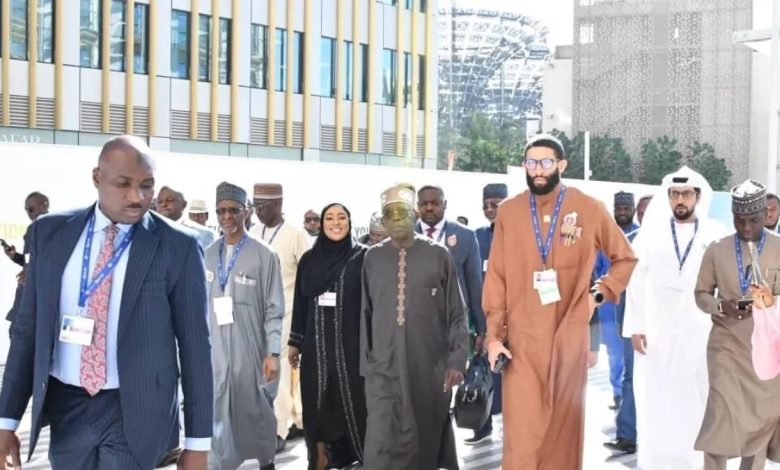
Recent revelations have sparked controversy and public outrage over the Nigerian government’s purported expenditure on delegates attending the COP28 Climate Summit in Dubai, United Arab Emirates.
The discrepancy between the number of sponsored delegates claimed by the Information Minister and independent estimates has fueled concerns about excessive spending amid economic hardship in the country.
The International Centre for Investigative Reporting (ICIR) conducted an independent investigation, estimating that the government might have spent a staggering N1.09 billion solely on round-trip flights for 422 delegates to the ongoing summit.
Furthermore, close scrutiny revealed that some delegates labelled as government officials lacked a direct climate portfolio, casting doubt on their necessity at the conference.
The ICIR arrived at the estimated expenditure by calculating the average cost of a round trip from Lagos to Dubai within a week, obtained from various airlines via the travel website Wakanow. The average price per person stood at N2.5 million, contributing to the overall estimate.
Social critic Celestine Okeke criticized the government’s delegation handling, describing the sponsorship as ‘embarrassing.’
He emphasized the government’s failure to exhibit efficiency in cost-cutting measures. He suggested sending at most 50 key policy officials to represent Nigeria, followed by a debriefing session upon their return.
His words: “The key thing for me is that this government has not shown it has the ability to cut the cost of governance. It has not shown the ability to use results efficiency principles. It has not shown the ability to do things differently. And they are not bothered about the numbers.
“Generally, what are the components of the supplementary budget sent to the National Assembly? It is buying cars and renovating offices and all of that. The result efficiency principles were not used here, in terms of scarce resources and what really should be into.”
Echoing these sentiments, Eme Okang, Executive Director of Atune Ngun Foundation, emphasized the difficulty in justifying such a substantial expenditure on a large delegation during economic challenges.
Okang highlighted the importance of considering the country’s needs and fiscal prudence in spending decisions.
“In light of recent borrowing by the government, spending a large amount on a climate change conference may not be viewed favourably.
“Many people may believe that a smaller, more cost-effective delegation could have represented the country at the conference without such a hefty expense,” she stated.
